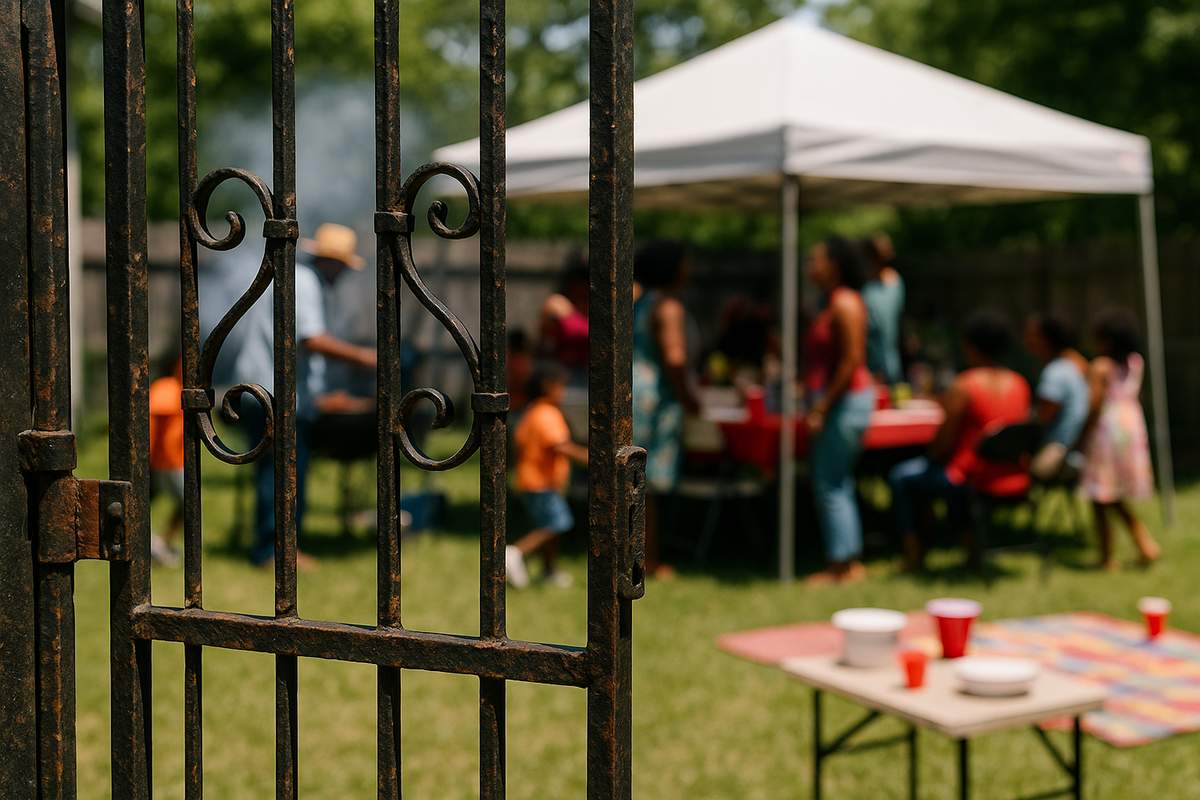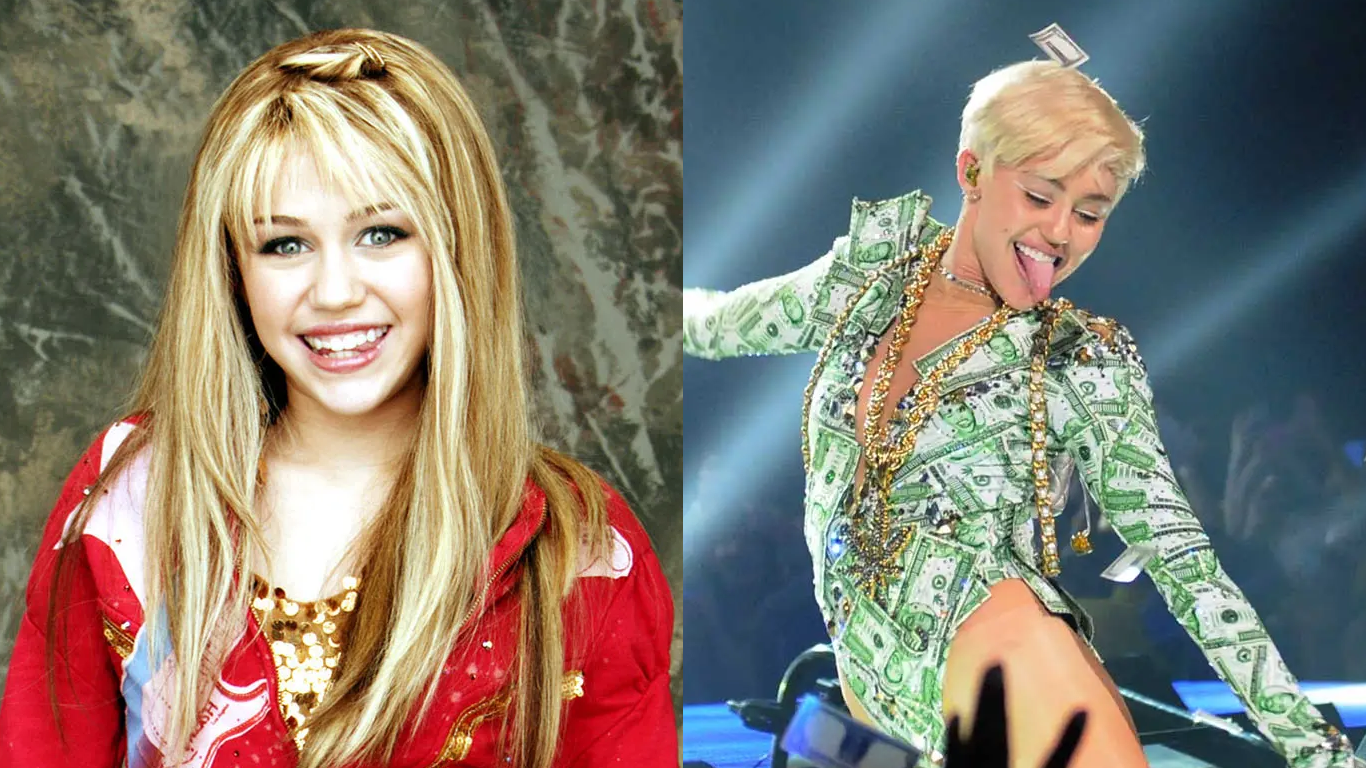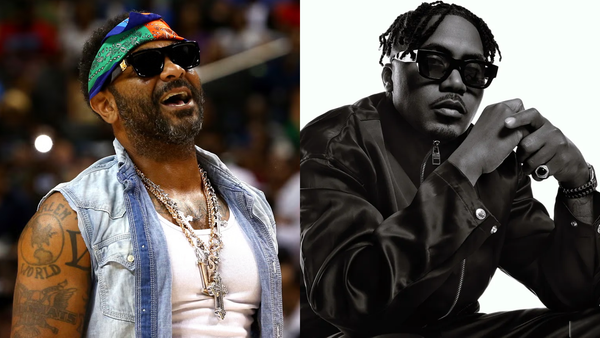The Cookout Conundrum: Why Black Forgiveness Is a Failing Strategy
The central thesis is this: The perception of Black America as endlessly forgiving and inviting is a complex survival strategy born from centuries of placating a hostile majority, but it's also a major character flaw.

It's funny how life works. Since we started our Substack(before we knew they platform Nazis), I've been looking into topics I wanted to write about that were more evergreen so there wouldn't be a mad dash to get articles done every single week. I was sitting on this topic because I knew it would always be relevant and there would always be fresh examples to look to.
Enter Hulk Hogan. Well, maybe exit Hulk Hogan. However you want to look at it, the concept of the cookout invite is stupid and harmful. I know Terry's death is old news, I told you've I've been sitting on this.
Let’s be clear: the proverbial Black cookout is more than a gathering. It’s a sanctuary. In a world that remains stubbornly hostile, the cookout, whether in a backyard or as a metaphor for cultural acceptance, is a self-made haven. It is the rare space where Blackness is the default, where joy is the agenda, and where the rules of engagement are our own. And yet, we have an open-door policy that consistently leaves us burned.
The central thesis is this: The perception of Black America as endlessly forgiving and inviting is a complex survival strategy born from centuries of placating a hostile majority, but it's also a major character flaw. We hand out invitations to our most sacred cultural spaces based on the thinnest of credentials. A little mimicry here, a performative social media post there. The problem is that many of these invited guests inevitably reveal their true selves. This either forces the community to publicly and painfully revoke the invitation or causes infighting. This exhausting cycle exposes the flimsy nature of performative allyship and the deep burden of unreciprocated grace.

Y'all Give Points For Anything
An "invite to the cookout" has become the ultimate digital symbol of Black acceptance. A white person masters the "Swag Surfin'" dance, and we declare them an honorary cousin. A celebrity posts a black square on Instagram, and we’re ready to hand them a plate.
This isn't just about being friendly; it's a symptom of a deeper psychological need for allies in a world that offers so few. It’s the product of what scholars term "racial battle fatigue", the exhausting, psychological toll of navigating daily racism. This fatigue can make even the most superficial gesture of solidarity feel like a lifeline.
But this openness has a high cost, as it allows individuals to build careers on the aesthetics of Blackness without ever having to bear the burdens of it. Simply put, when you hand out invitations like a band trying to get people to come to their open mic performance, you enable and accelerate cultural appropriation.
A Guest List Built on Appropriation
The following public figures gained significant cultural capital, and a symbolic "cookout invite," by adopting elements of Black culture:
- Miley Cyrus: She built her entire Bangerz album era (2013) on a foundation of twerking, grills, and collaborations with Black hip-hop producers, effectively using Black culture as a costume to shed her Disney image.

- Justin Timberlake: From his debut solo album Justified, Timberlake built a brand on the sounds and stylings of R&B and Black music, earning him the moniker "the blue-eyed soul singer." This embrace from the Black community was foundational to his solo success.

- Kim Kardashian: For over a decade, Kardashian has been "blackfishing". Using tanning, hairstyles, and fashion to mimic the aesthetics of Black women, which has become central to her global brand.

- Awkwafina: The actress and rapper built her early career on a "blaccent," using African American Vernacular English (AAVE) as a core part of her comedic persona, which many critics have called a modern form of minstrelsy.
The Revelations
The second act of this play is as predictable as it is painful. After being welcomed into the space, the invited guest displays behavior that is harmful, dismissive, or overtly racist, revealing their initial "allyship" was conditional and self-serving. I always say there is no such thing as the perfect ally, but that's a story for another time.
The following public figures faced a backlash from the Black community, effectively having their "invites" rescinded after initial acceptance:
- Bette Midler: After being celebrated for her early career, which was heavily influenced by Black culture and launched in queer spaces, Midler tweeted in 2018 that women "are the n-word of the world." The comment was seen as profoundly anti-Black, dismissive of the unique history of chattel slavery, and a betrayal of the community that had long supported her.
- Justin Timberlake: His cookout invitation was effectively revoked after the 2004 Super Bowl halftime show, during which he exposed Janet Jackson's breast but faced virtually no career repercussions, while Jackson's career was severely damaged. His decades of silence on the matter, coupled with his tone-deaf responses to accusations of cultural appropriation, were seen as a profound betrayal.
- Miley Cyrus: After profiting from a hip-hop-infused image, Cyrus made a sharp pivot in 2017, stating in an interview that she was no longer interested in the genre because it had become too focused on "materialistic" and "sexist" themes. This comment played into racist stereotypes and erased the contributions of the very artists who had legitimized her reinvention.
- Awkwafina: After years of criticism for her use of a "blaccent," her nomination for an NAACP Image Award in 2022 sparked a significant backlash. Her subsequent, belated statement was seen by many as a non-apology that failed to take full accountability for building a career on the mockery of Black linguistic patterns.
The Unbearable Weight of Black Forgiveness
This cycle of invitation and revocation is underpinned by a broader, more insidious cultural expectation: the demand for Black forgiveness. From the families of the Charleston church shooting victims publicly forgiving a white supremacist murderer to the endless calls for "unity" after acts of police brutality, Black people are socially conditioned to perform forgiveness.
It is often framed as an act of moral superiority, but it's really just a tool of white supremacy. This "compulsory forgiveness" functions to absolve the perpetrator, bypass accountability, and restore white comfort at the expense of Black pain. It is a conditioned response, a survival mechanism honed over generations to de-escalate potentially violent racial encounters.
Refusing to forgive is seen as bitter or dangerous, while performing grace is rewarded with praise for being "the bigger person." This external pressure, combined with internal racial trauma, creates a space where a low bar for entry to our cultural spaces feels not just welcoming, but necessary for survival.
It Doesn't Have to be All or Nothing
I want to be very clear here about what an invite is. When you give a stranger a blanket benefit of the doubt when it comes to racial topics, that's an invite. When you start saying that a person who is clearly Caucasian is Black, that's an invite. When you start using words like "cousin" or "family" to describe them, that's an invite. You get the point.
This isn't to say you can't be a friend or fan of someone who is non-black. But when you dub someone Cody "Raheem" Rhodes, and then he goes out on a globally televised TV show to pay tribute to the "complicated" legacy of a virulent racist, understand that was a bad invite. There isn't anything complicated about racism.
When you come into someone's thread defending Joey Swoll for his Hogan tribute and then he doubles down and shifts blame toward "colored" influencers who "did the same thing," understand that was a bad invite.
It's Time to Raise the Price of Admission
The cookout is and must remain a sanctuary. But a sanctuary with an open-door policy in a hostile environment is not a fortress; it's a liability. The recurring drama of the revoked invitation is proof that our terms of engagement are flawed. We have allowed our desperate need for allies and our conditioned instinct for grace to create a system that is easily exploited.
The solution is not to become isolationist, but to become more discerning. It is to move from a framework of unreciprocated grace to one of radical reciprocity. Acceptance, and a seat at the table, must be earned through tangible, consistent, and meaningful anti-racist action, not through shallow mimicry or hollow gestures. And even then, that table should be at the function that's happening next door.
For those outside the community, the goal should not be to finagle an invitation to the cookout. The goal should be to commit to the difficult, unglamorous work of dismantling the systems that make such heavily guarded sanctuaries necessary in the first place. Until then, the guest list needs to be audited, the locks need to be changed, and the price of admission must, for our own preservation, be raised.
What's Your Take?
This is the kind of cultural autopsy we specialize in as the Black Culture Geekz . We don't just state the facts; we explore the flawed logic behind the headlines.
- Is the concept of the "cookout invite" more harmful than helpful to the Black community?
- Who is on your personal "revoked cookout invite" list and why?
Let us know your unfiltered thoughts in the comments. We read everything.
If you appreciate analysis that cuts through the noise and gets to the heart of the matter, make sure you sign up to our newsletter. You'll get our weekly deep dives, exclusive show notes, and access to a community that loves to debate the culture on a higher level.
